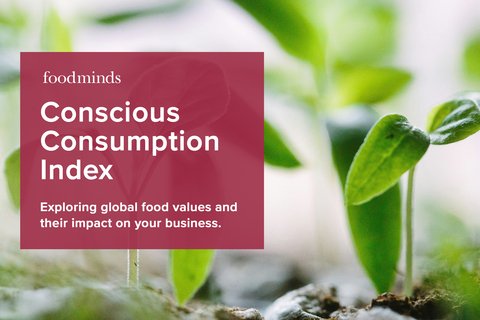Inside BENEO’s new pulse plant: pioneering sustainable protein from faba beans
More than half of consumers define healthy, sustainable foods as nutritious (56 per cent) and organic (51 per cent)
Familiarity with healthy sustainable food systems is rising. Yet, according to the FoodMinds 2024 Conscious Consumption Index (CCI), less than half (42 per cent) of consumers are purchasing healthy, sustainable options on the majority of their grocery shopping trips.
The survey, which reveals perceptions and purchasing behaviours of more than 3,000 consumers from the U.S., Canada and the UK, identifies price as the primary barrier to buying healthy, sustainable foods. Additionally, scepticism around marketing claims and concerns over transparency in food production were among the top reasons consumers do not buy healthy, sustainable foods.
“Consumers are increasingly aware of the impacts their food choices have on both their health and the environment. However, the gap between awareness and action remains significant. At FoodMinds, we believe there are opportunities for education, transparency and industry leadership to help bridge this gap and empower consumers to make informed, sustainable choices,” said Lauren Hoffman, MBA, RD, Vice President of Healthy, Sustainable Food Systems at FoodMinds.
Defining Healthy, Sustainable Foods: “Nutritious” and “Organic” Lead the Way
More than half of consumers define healthy, sustainable foods as nutritious (56 per cent) and organic (51 per cent). Other popular associations were environmentally responsible, planet-friendly and plant-based. Notably, the association of “affordability” with sustainability has increased since 2021 (53 per cent vs. 46 per cent), though it remains one of the least associated terms.
Key Purchase Drivers: Price, Taste and Healthiness
For most U.S. consumers (51 per cent), price is a crucial factor when purchasing healthy, sustainable foods, followed by taste (48 per cent) and healthiness (39 per cent). These trends align with findings from 2021 and are consistent across Canada and the UK. Other considerations include recognisable ingredients and positive nutrients, while factors like plant-based options, fair labour certifications and environmental impact are less prioritised.
Consumers Look for Industry Leadership and Transparency
The CCI underscores the need for food companies, NGOs and governments to take action to foster trust and support a sustainable future. A quarter of consumers emphasise the importance of supply chain transparency, 21 per cent seek visible product formulation changes and 20 per cent value partnerships with public health and environmental organisations.
“While consumers recognise the role they play in embracing healthier, more sustainable choices and behaviours, they are looking to food and beverage companies and government agencies to lead the way in food systems transformation. Organisations that put a clear and credible stake in the ground regarding their health, wellness and sustainability commitments can build trust and loyalty with key target consumers,” stated Andrea Carrothers, RD, Senior Vice President and Group Lead at FoodMinds.

